STEM-Trek hosted a pre-conference workshop Nov. 10-11, ahead of the Supercomputing Conference in Denver, Colorado, November 12-17, 2023. This event has passed, but details are available here:
STEM-Trek Nonprofit has facilitated a series of workshops and events that are co-located with the annual Supercomputing Conference since 2015. The first, in collaboration with Executive Director Dan Stanzione at the Texas Advanced Computing Center (TACC), was for systems administrators and research facilitators held just prior to SC15 in Austin, Texas. The second: “HPC On Open Ground@SC16,” was focused on food security science. URISC@SC17 provided training on high-speed networks and best practices associated with cybersecurity. Activities were less communal at SC20-21 with “ScienceSlam” online competitions. In 2022, we held the first in-person workshop in five years titled, EarthSci@SC22.
Our workshop series welcomes applications from ACCESS Campus Champions in EPSCoR states and territories, and from demographics that are underrepresented in research computing and data science (RCD) academics and careers. We typically host about half from Southern African Development Community (SADC) members of the African HPC Ecosystems project led by the South African Centre for HPC.
Nuclear? Renewable? Green?
NRG@SC23 will showcase a range of energy-related research projects that are developing best practices, toolkits and novel strategies to tackle the global grand challenges associated with climate change. It’s a wonderful opportunity for RCD professionals to meet others from around the world who work in similar roles, and a great way to coalesce as a cohort before entering the full conference which, due to its size (>10k), can be overwhelming for newcomers.
The SC23 General Chair donated a limited number of full tech program registration waivers (with workshops and tutorials), a room for our meetings, and audiovisual support. South African Airlink Airlines is sponsoring round-trip flights to JNB from destinations they serve, and donations to STEM-Trek will bridge gaps. Google is sponsoring the international delegation plus gaps, and AWS and VAST Data are sponsoring meals.
Update: The NRG@SC23 application for travel support to attend SC23 is now closed! Award letters were sent to beneficiaries in August.
More; Faster Horses!!!
Henry Ford once said if he had asked his customers what they wanted, they would have said, “faster horses.”
The IEEE Floating Point standard was registered in 1985. Since then, Moore’s Law ensured that we doubled power every two years, until the data deluge broke it.
When the pandemic affected supply-chains, countries that didn’t make their own chips were at a huge disadvantage – everyone needed technology for education, healthcare, commerce, and more.
In response, the 2022 U.S. CHIPS and Science Act provided $52.7B in research and development funding which influenced US agency program offerings aimed at improving US competitiveness in chip production and supply-chain resilience. The EU passed a comparable act that year allocating €43B from the public investment. Since then, there has been an estimated $200B investment in the private sector. Historically, most research has been sponsored by the public investment; commercial R&D isn’t typically ‘open.’ This redistribution could impact the open-source culture many rely on – it may not be FAIR (Findable, Accessible, Interoperable, and Reusable) but get ready for it.
When it costs more to feed your horses than they’re worth, they become dog food.
The longstanding HPC paradigm is not sustainable; when applied to today’s grand computational challenges, too much energy is consumed with a tremendous impact on the environment. Images of burning bitcoin mines are hard to forget.
The data center construction industry, projected to exceed $400B by 2032, is moving toward small modular reactor innovation (SMR). Data centers typically crop up in regions with cheap real estate and an abundance of alternative energy; it’s likely that those who attend this workshop live and work in places that could capitalize on plenty of land, with a wealth of hydro (snowpack), wind, solar, and talent.
Idaho National Laboratory (INL) leads R&D in SMR nuclear innovation (Sodium, natrium, etc.) that is expected to power data centers, and communities by 2030. The energy core has a much shorter lifespan (Sodium-cooled at ~30-year core life, for example, and the reactors are tiny by comparison to older nuclear innovation). There is hope that SMR will free us from aging nuclear and coal-powered infrastructure.
Maybe we need unicorns – they can fly above the clouds!
With greater emphasis on generative artificial intelligence (AI) in industry and all research domains, workflows are more data intensive. A proliferation of sensors, drones, lidar and satellite data took environmental research to a level where critically important historical data could be at risk with few affordable options for long-term storage that allows FAIR/free egress. To manage the deluge, AI is employed to use data more judiciously; software, hardware and networks are being customized to achieve the highest precision, move quicker and with fewer bits – often at the edge. Custom computing environments, some employing exotic math, are designed to require much less (different) storage and energy. To address these demands, new interconnects, storage innovation and methods of securing data from end-to-end are being developed.
They’re also quieter – which is important to edge-based technology that serves the Square Kilometer Array and other radio instrumentation in remote locations. Research cyberinfrastructure – systems, software and networks – is being developed with conservation in mind. Instruction-set architecture, aka composable computing, will be more common. Such platforms exist in commercial clouds where industrial users can pay as they go. Amazon Web Services (AWS) features more than 200 variations of EC2 HPC instances with varying memory, bandwidth requirements; more are created each day.
The architectural diversity available in commercial cloud is wonderful, but hard for universities to adopt; pay-as-you-go is difficult to achieve with grant-funded projects. Industry partners who can front the cost are now more important, and they also sponsor internships and workshops, like NRG@SC23. While a university could never afford to host as many platforms as AWS, NSF ACCESS features a diverse portfolio of options that are available at no cost, and the “ACES” composable system, at Texas A&M, has CPU, GPU, (Graphcore) IPU and programmable FPGA components so you can design your own.
All U.S. agencies have made a greater investment in commercial cloud. Academic RCD facilitators must make a greater effort to on-board their constituents with agency cloud so they are exposed to the architectural diversity that is available there. Each agency cloud has slightly different rules of engagement and eligibility requirements. The US National Science Foundation, through the ACCESS program features Cloud Bank. Additionally, the US National Institutes of Health (NIH) features the STRIDES program, Department of Defense (DOD) has the Joint Warfighter Cloud, and National Aeronautics and Space Administration (NASA) hosts Earthdata Cloud, which supports free and open access to data generated by the globally distributed research that NASA supports.
Because things have remained stable for so long, it will be difficult for academia to keep up with rapid change. RCD training models have historically employed decommissioned X-86 hardware. Students and research faculty need hands-on access to modern resources, such as the Isango platform; envisioned as a small, affordable, composable and portable training sled, under warranty, that will come with its own community of training and support. We will share an Isango roadmap and vision at NRG@SC23.
It will take time to retrain – Experienced RCD professionals should plan to spend 20 percent of their time learning new skills; more funding must be allocated so they can attend technical conferences where they will learn about the latest innovation. Universities will still need hands-on access to HPC on their campuses for teaching and learning – to prepare systems, electrical, network, and cybersecurity professionals. Among skills, intellectual curiosity, tenacity, and creativity are prized as exotic math and software-defined architecture make their debut. Students must be exposed to theoretical computer science and exotic math – the ability to think outside of the box is needed to solve global grand challenges in novel ways.
Planning committee:
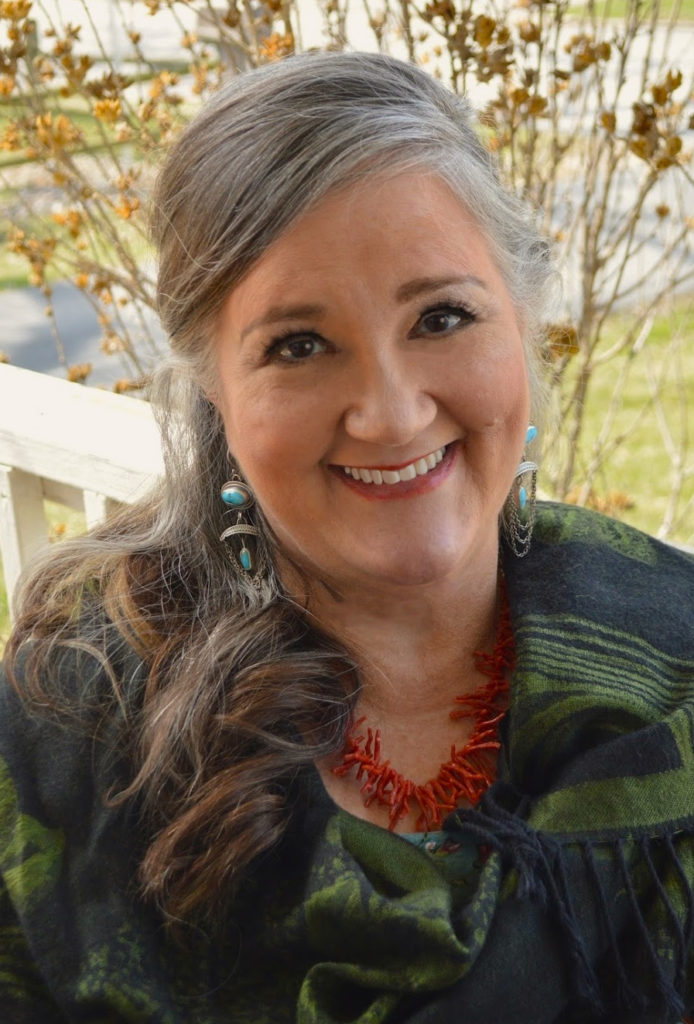
Founder and Director, STEM-Trek Nonprofit
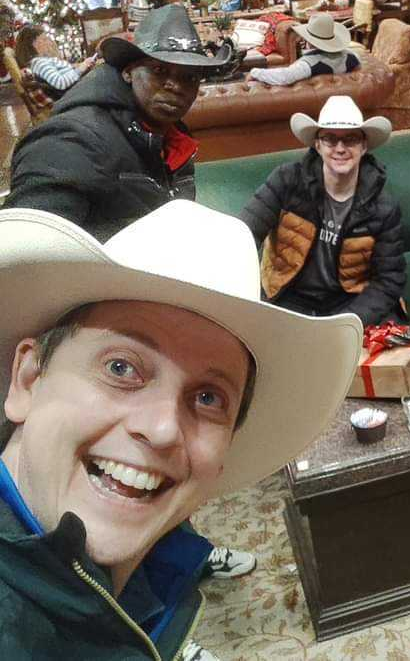
Senior HPC Systems Engineer, CHPC South Africa
NRG@SC23 Highlights:
Jet Lag Day: On November 9, the international delegation will visit the National Center for Atmospheric Research (NCAR) in Boulder, Colorado.
Umesh Upadhyaya, HPC Nepal seeks to grow Nepal’s HPC footprint – research drivers are kindred with others who typically attend this workshop – for example, climate, hydrology, seismology, wildlife conservation, geochemical engineering, and many more domains. An abundance of snowpack in the Himalayan Mountains makes hydro-energy of particular interest.
Shelley Knuth (UC-Colorado at Boulder and NSF ACCESS co-PI) will let us know what ACCESS has available in terms of resources, travel grants and more.
Idaho National Laboratory (INL) and the C3+3 Collaboration: INL collaborates with Boise State University, University of Idaho and Idaho State University on the C3+3 collaboration for the state of Idaho. INL hosts a system that was released from INL service and recommissioned it for use by the C3+3 academic partners. Representatives from the universities and lab will share their experience.
African HPC Ecosystems workforce development project – since 2012, this project has successfully hosted repurposed HPC from government labs in the US, UK and South Africa. Senior HPC Systems Engineer Bryan Johnston and a panel of Ecosystems managers will talk about their experience, and success in the Interntional Supercomputing Student Cluster Competitions, where they have been known to prevail.
Fun night! Thanks to AWS, we will host a group dinner and mixer at the Yard House Restaurant!
Thank you sponsors! Google, NSF (rollover from EarthSci@SC22), VAST Data, Amazon Web Services, Airlink, and SC23 General Chair Dorian Arnold!
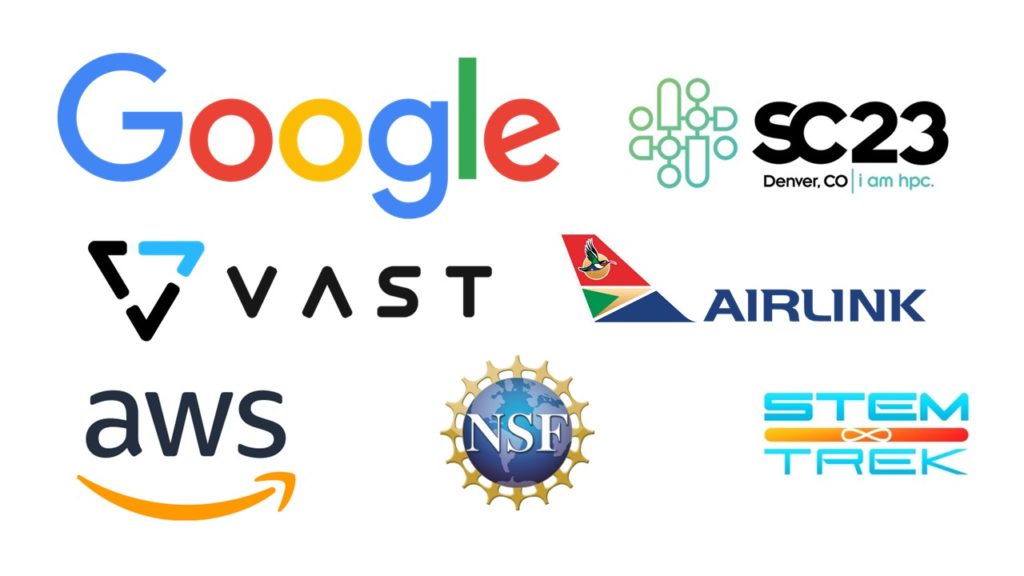
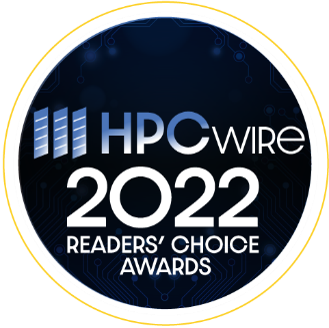

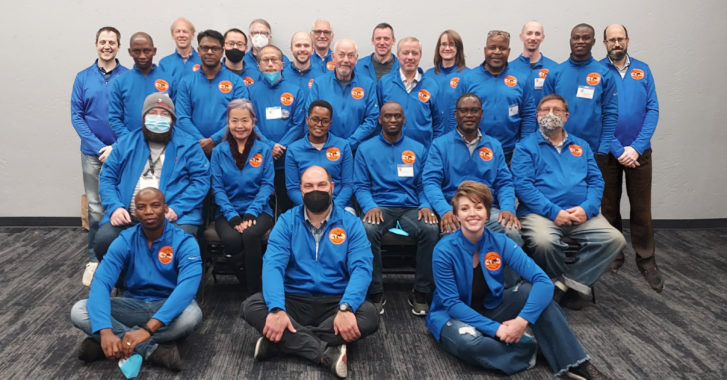
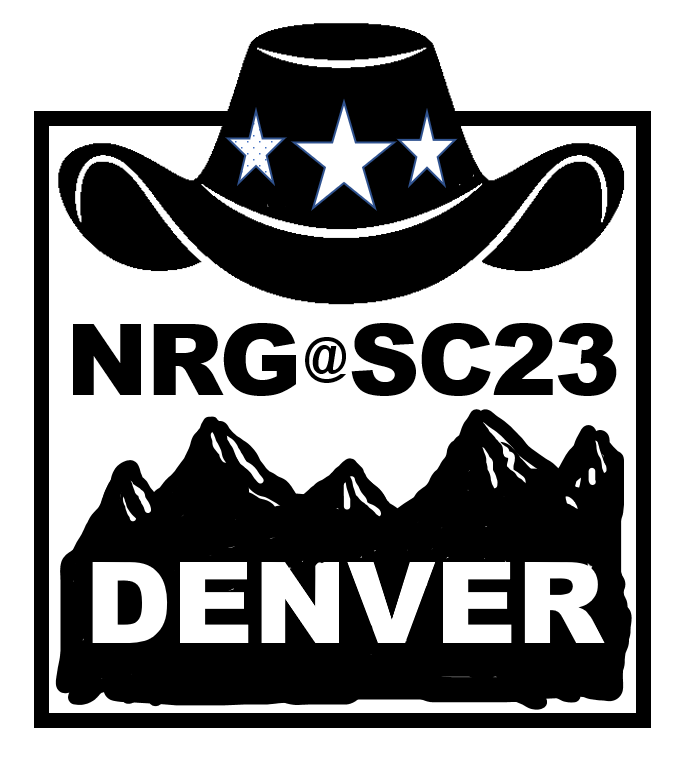
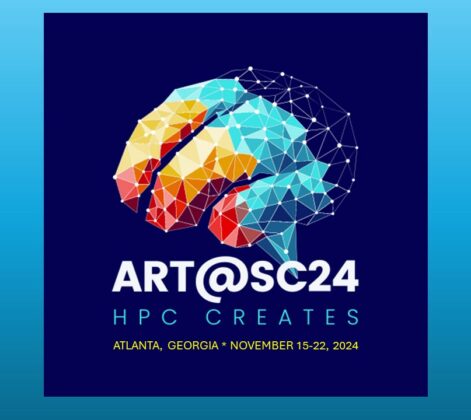


Interesting conference. Would like to contribute some in ML technology. Preferably in Pharmaceuticals and AI imaging/video production.